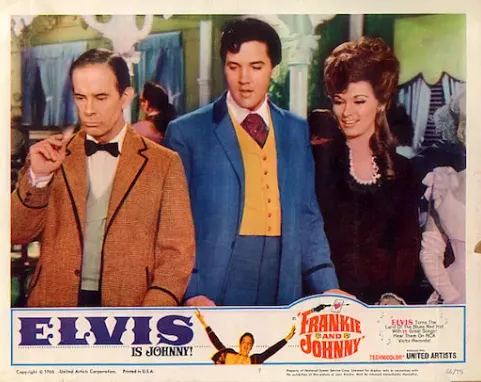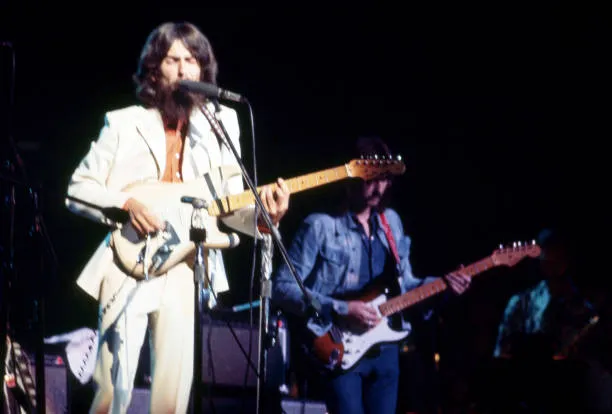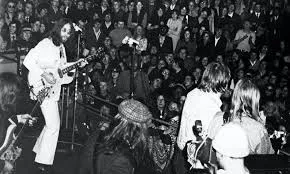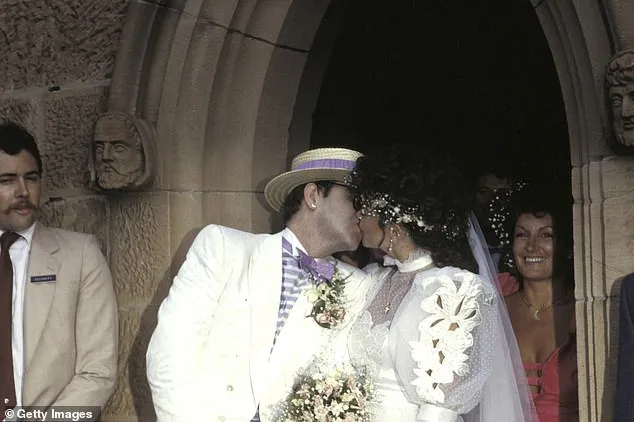When you think of an electrifying stage presence in rock and blues, Joe Cocker often comes to mind.
Known for his raw, soulful voice and uninhibited movements, his performances were nothing short of captivating.
Cocker’s distinct style, termed the "Joe Cocker movement," was as much a part of his identity as his music. Yet, as his career evolved, there was a noticeable change—Joe Cocker began to tone down his once-dynamic performing style.
This article dives into the multifaceted reasons behind this transformation, exploring the personal, professional, and health-related factors that influenced one of rock’s most iconic performers.
The Origins of Joe Cocker’s Unique Style

Joe Cocker burst onto the music scene in the late 1960s, gaining notoriety for his unique interpretations of popular songs and a stage presence that was utterly spellbinding.
His version of The Beatles' “With a Little Help from My Friends” became a quintessential display of his vocal prowess and physical expressiveness.
Cocker’s movements—jerky, contorted, and deeply emotive—appeared to channel the very essence of his musical soul.
The "Joe Cocker movement" became legendary, a blend of physicality and emotion that seemed almost involuntary, as if his body was an instrument being played by the music itself.
His frenetic gestures added layers of emotion and intensity, making his performances unforgettable.
The Peak of Performative Intensity
During the early years of his career, Cocker’s high-energy performances were a major draw.
He was a staple of the live music scene, winning over audiences at iconic venues and festivals, including the legendary Woodstock in 1969.
His theatricality was not just a spectacle but an extension of his artistic expression.
It seemed as though Joe Cocker's movements and his voice were inextricably linked, each amplifying the other.
Cocker’s physical expressiveness attracted as much attention as his voice. Every twitch, wave, and thrust added drama to his already intense performances.
He was not just singing; he was living the music, making each song a visceral experience for his audience.
The Evolution: Toning Down the Movement

Starting from the late 1970s onwards, fans and critics began noticing a shift—Cocker's movements became more subdued compared to his earlier performances.
This change was not abrupt but rather a gradual evolution influenced by a combination of factors.
Health Concerns and Physical Wear
A significant reason behind the toned-down style was health-related. Years of intense performance took a toll on Joe Cocker's body.
The high-energy movements and rigorous touring schedule led to physical strain and fatigue.
It’s important to remember that maintaining such a physically demanding performing style is taxing, especially over an extended career.
Arthritis and other joint issues began to make it increasingly difficult for Cocker to maintain his energetic stage presence.
These physical challenges necessitated modifications to his performance style, helping him to continue doing what he loved without causing further harm to his body.
By toning down his movements, Cocker could preserve his health while still delivering powerful vocal performances.
Shifts in Musical Landscape and Audience Preferences
Another factor contributing to Cocker’s toned-down style was the changing musical landscape and evolving audience preferences.
As rock and blues scenes matured, there was a shift towards more introspective and nuanced performances.
The flamboyant stage acts of the 60s and 70s began to give way to subtler, more refined presentations.
Joe Cocker, always attuned to his audience, adapted his style to match these shifts. The emphasis was increasingly placed on vocal quality and emotional depth rather than sheer physicality.
His audience had grown with him, and their appetite for musical experiences had evolved, appreciating Cocker's deepening artistry without the need for the same level of theatricality.
Maturity and Artistic Evolution
As artists age, it’s not uncommon for their styles to evolve to reflect their personal growth and changing perspectives.
Joe Cocker was no exception. With age often comes a more measured approach to artistic expression.
Cocker's maturing artistry led him to focus more on the emotional delivery of his songs rather than the physicality of his performances.
With his growing maturity, Cocker’s interpretations of songs gained emotional richness and a deeper resonance.
His performances became more introspective, inviting the audience to connect with the nuances of his vocal delivery and the emotions behind each lyric.
This evolution allowed him to present his music in a different light, one that was equally compelling but less physically demanding.
Substance Abuse and Recovery
Joe Cocker’s career was also punctuated by struggles with substance abuse, which undeniably influenced his performance style.
The physical and psychological effects of substance abuse impacted his ability to sustain the high-energy performances he was known for.
However, his journey toward recovery introduced a period of introspection and change.
Coming out on the other side, Cocker embraced a more grounded and controlled performing style.
This transformation was part of his broader journey to regain control of his life and health, allowing him to channel his energy more sustainably.
Professional and Personal Stability
As Joe Cocker entered into periods of professional success and personal stability, his approach to performing evolved.
Having achieved legendary status, he no longer needed to rely solely on the flamboyance of his earlier years to captivate audiences. His established career afforded him the freedom to experiment with his style.
His long-term collaborations with producers like Chris Lord-Alge and musicians like Phil Grande helped to shape a more polished and sophisticated sound.
These professional relationships contributed to Cocker's evolving performance style, emphasizing vocal excellence and musicality over physical theatrics.
Reflecting on the Change
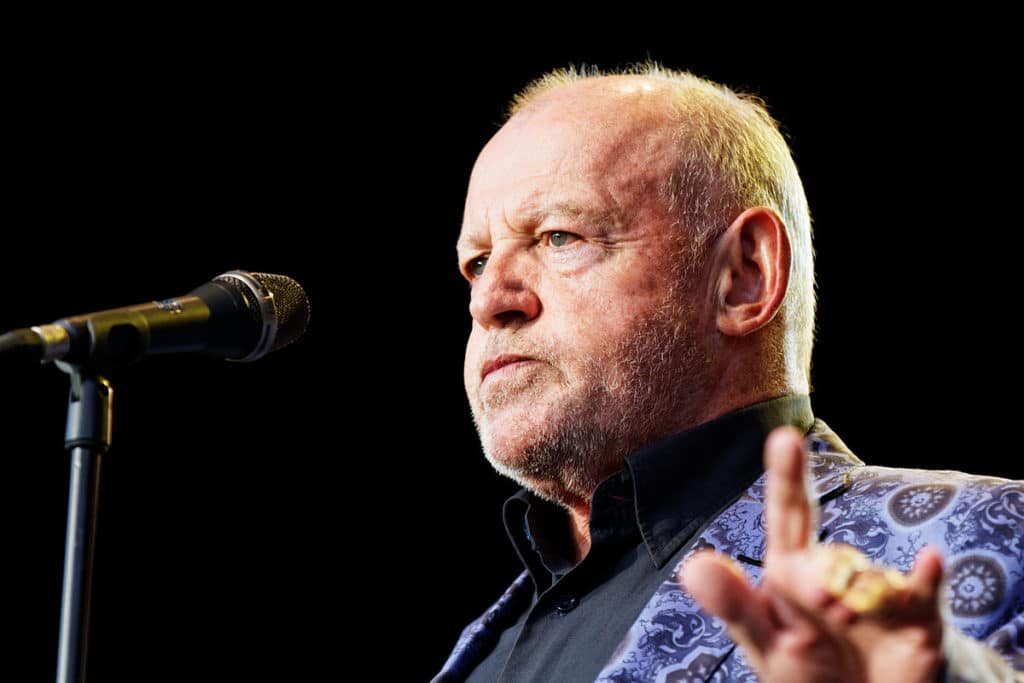
It’s essential to reflect on how this transformation affected Joe Cocker's legacy. Did toning down his movements diminish his impact? Quite the opposite.
Cocker continued to command the stage with his soulful voice and heartfelt delivery. The essence of his performances remained—raw, emotive, and powerful—but manifested through subtler, nuanced expressions.
His later performances were marked by a different kind of intensity—one that required less physical exertion but offered just as much, if not more, emotional depth.
This shift allowed his audience to focus more on his exceptional vocal talent and the emotional conveyance of his music. The quieter, more restrained Joe Cocker was a testament to his enduring artistry and versatility.
The Legacy of Joe Cocker’s Movement
Joe Cocker's movement remains an iconic element of his legacy. Even as he toned down his physicality, the original intensity and passion of his early performances continue to inspire and captivate.
Videos of his electrifying performances at Woodstock and other venues serve as timeless reminders of his unique style.
The evolution of his performing style reflects the journey of an artist deeply in tune with his body, his audience, and his music.
Cocker's ability to adapt and transform while maintaining his core essence is what made his career so remarkable. His legacy is a testimony to the power of authenticity and emotional honesty in music.
A Legend of Transformative Artistry
Why did Joe Cocker tone down his performing style? The answer lies in a confluence of health concerns, shifting musical landscapes, personal growth, and the journey towards greater artistic and personal stability.
The "Joe Cocker movement," while less pronounced in his later years, never truly disappeared.
Instead, it morphed into a more nuanced and sustainable form of expression, allowing Cocker to continue captivating audiences with the same emotional intensity.
Joe Cocker's legacy as an artist is defined not merely by his early, frenetic performances but by his entire body of work and his ability to adapt and stay relevant.
Whether through the fiery passion of his youth or the deep, soulful performances of his later years, Cocker’s artistry remains unparalleled, cementing his status as one of rock and blues’ most enduring icons.
